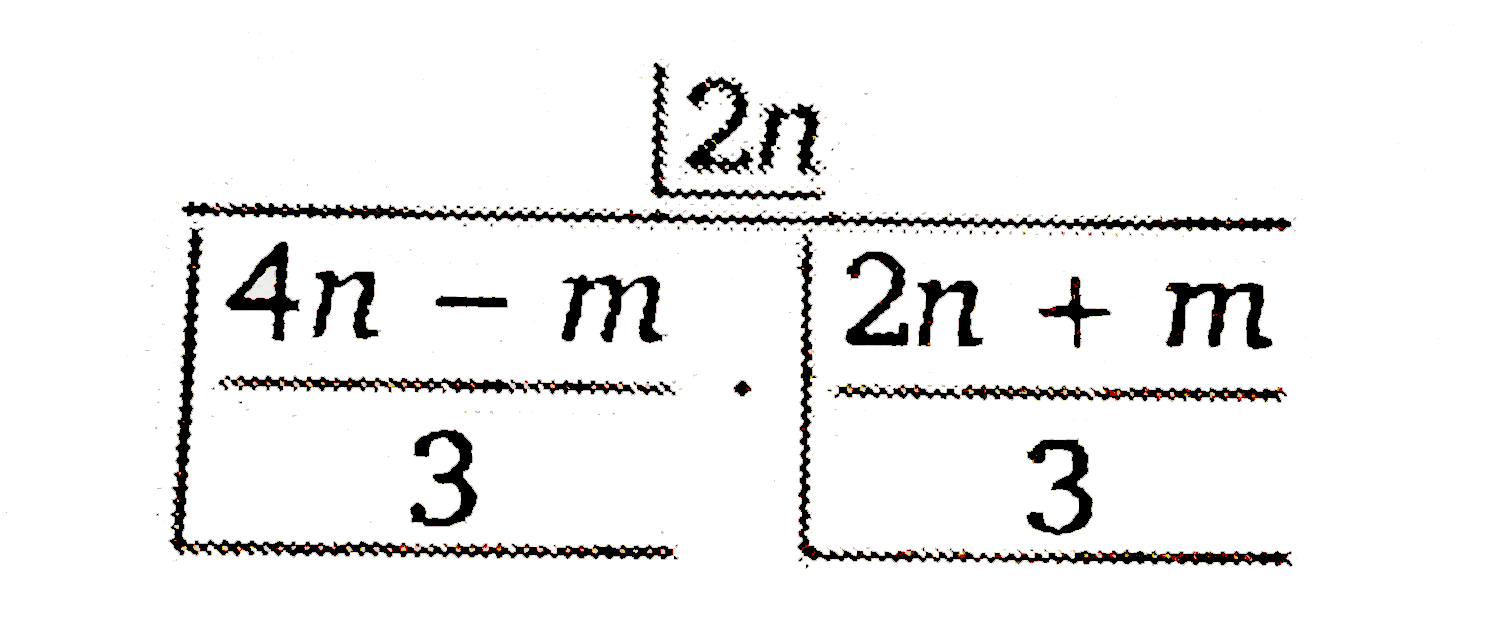If 1/x+x=2cosθ , then prove that xn+1/xn=2cosnθ.
To prove that if 1x+x=2cosθ, then xn+1xn=2cosnθ, we can follow these steps:
Step 1: Start with the given equation
We have:
1x+x=2cosθ
Step 2: Rewrite x
Let:
x=cosθ+isinθ
This is a representation of x in terms of trigonometric functions.
Step 3: Find 1x
To find 1x, we can multiply the numerator and denominator by the conjugate:
1x=1cosθ+isinθ⋅cosθ−isinθcosθ−isinθ
This simplifies to:
cosθ−isinθcos2θ+sin2θ=cosθ−isinθ
since cos2θ+sin2θ=1.
Step 4: Combine x and 1x
Now we have:
1x+x=(cosθ−isinθ)+(cosθ+isinθ)=2cosθ
This confirms our initial equation.
Step 5: Use De Moivre's Theorem
According to De Moivre's theorem:
xn=(cosθ+isinθ)n=cos(nθ)+isin(nθ)
and
1xn=(cosθ−isinθ)n=cos(nθ)−isin(nθ)
Step 6: Add xn and 1xn
Now, we can add these two results:
xn+1xn=(cos(nθ)+isin(nθ))+(cos(nθ)−isin(nθ))
This simplifies to:
2cos(nθ)
Conclusion
Thus, we have shown that:
xn+1xn=2cos(nθ)
We have:
1x+x=2cosθ
Let:
x=cosθ+isinθ
This is a representation of x in terms of trigonometric functions.
To find 1x, we can multiply the numerator and denominator by the conjugate:
1x=1cosθ+isinθ⋅cosθ−isinθcosθ−isinθ
This simplifies to:
cosθ−isinθcos2θ+sin2θ=cosθ−isinθ
since cos2θ+sin2θ=1.
Now we have:
1x+x=(cosθ−isinθ)+(cosθ+isinθ)=2cosθ
This confirms our initial equation.
According to De Moivre's theorem:
xn=(cosθ+isinθ)n=cos(nθ)+isin(nθ)
and
1xn=(cosθ−isinθ)n=cos(nθ)−isin(nθ)
Now, we can add these two results:
xn+1xn=(cos(nθ)+isin(nθ))+(cos(nθ)−isin(nθ))
This simplifies to:
2cos(nθ)
Thus, we have shown that:
xn+1xn=2cos(nθ)
Topper's Solved these Questions
Similar Questions
If x=2sinθ1+cosθ+sinθ , then prove that 1−cosθ+sinθ1+sinθ is equal to x .
View SolutionIf x+1x=2cosθ, then xn+1xn is equal to
View SolutionIf x=1+sinθcosθ, prove that : sinθ=x2−1x2+1
View SolutionIf x=2sinθ1+cosθ+sinθ,then1−cosθ+sinθ1+sinθ is equal to (a) 1+x (b) 1−x (c) x (d) 1x
View SolutionIf x=2sinθ1+cosθ+sinθ,then1−cosθ+sinθ1+sinθ is equal to 1+x (b) 1−x (c) x (d) 1x
View SolutionIf x=2sinθ1+cosθ+sinθ,then1−cosθ+sinθ1+sinθ is equal to 1+x (b) 1−x (c) x (d) 1x
View SolutionIf x=2sinθ1+cosθ+sinθ,then1−cosθ+sinθ1+sinθ is equal to
(a)1+x (b) 1−x (c) x (d) 1x
View SolutionIf 'n' is a positive integer then prove that the coefficient foxm in the expansion of (x2+1x)2n is :

View SolutionIf 'n' is a positive integer then prove that the coefficient foxm in the expansion of (x2+1x)2n is :

View SolutionIf the middle term of the expansion of (1+x)2n is the greatest term then prove that x lies between nn+1 and n+1n
View Solution
